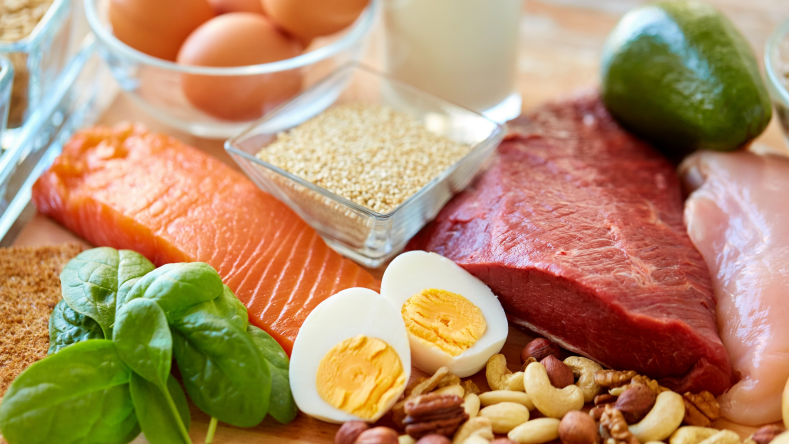What happens if you eat too much protein?
This question is about GLP-1 & Weight Loss and Nutrition
If you eat too much protein, you can experience weight gain, kidney damage, increased fluid needs, and an increased risk of heart disease.
Protein needs vary from person to person; however, research shows intakes of 1-2 g of protein/kg of body weight/day are safe for healthy adults and adequate to meet the needs of most active individuals [ 4 4
Studies also show that long-term consumption of protein at 2 g/kg/d is safe for healthy adults, but unless you are a trained athlete, anything more than this is likely unnecessary and may even contribute to health problems [ 4
Let’s examine the possible effects of eating too much protein in more detail.
Weight gain. Excess protein is broken down and converted into carbohydrate or fat, which can contribute to weight gain over time if you’re consuming more calories than you need.
May promote kidney damage. Eating too much protein puts increased strain on your liver and kidneys, which are two organs responsible for metabolizing excess protein and excreting the urea and other byproducts of protein metabolism. Healthy kidneys can compensate for the increased workload; however, eating too much protein may further cause damage in those with kidney disease [
1
].Increased fluid needs. Consuming too much protein may increase fluid needs and urination as the kidneys work to excrete the excess urea produced from protein metabolism.
Increased risk of heart disease. Research shows eating too much protein over time (particularly from processed and red meat) may increase your risk of heart disease and cancer, particularly if you are over 50 and have poor diet and lifestyle habits [
2
,3
].
When choosing protein foods, be sure to prioritize healthy sources including fish and seafood, poultry, beans, tofu, legumes, nuts and whole grains.

People also ask:
References:
Ko, G. J., Rhee, C. M., Kalantar-Zadeh, K., & Joshi, S. (2020). The Effects of High-Protein Diets on Kidney Health and Longevity. Journal of the American Society of Nephrology, 31(8), 1667–1679.
https://doi.org/10.1681/asn.2020010028
High-Protein Diets Linked to Cancer: Should You Be Concerned? (2018, October 1). Examine.Com.
https://examine.com/nutrition/high-protein-diets-linked-to-cancer-should-you-be-concerned/
Virtanen, H. E., Voutilainen, S., Koskinen, T. T., Mursu, J., Tuomainen, T. P., & Virtanen, J. K. (2018). Intake of Different Dietary Proteins and Risk of Heart Failure in Men. Circulation: Heart Failure, 11(6).
https://doi.org/10.1161/circheartfailure.117.004531
Wu G. (2016). Dietary protein intake and human health. Food & function, 7(3), 1251–1265.
https://doi.org/10.1039/c5fo01530h
